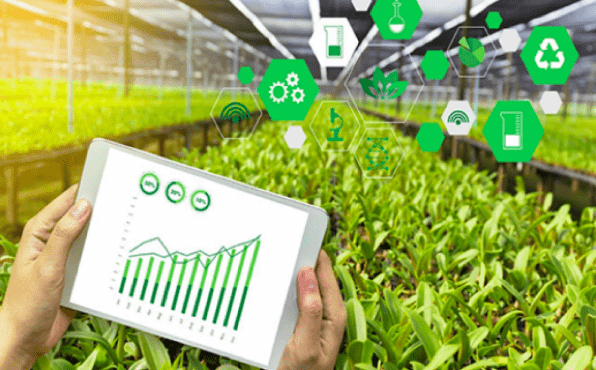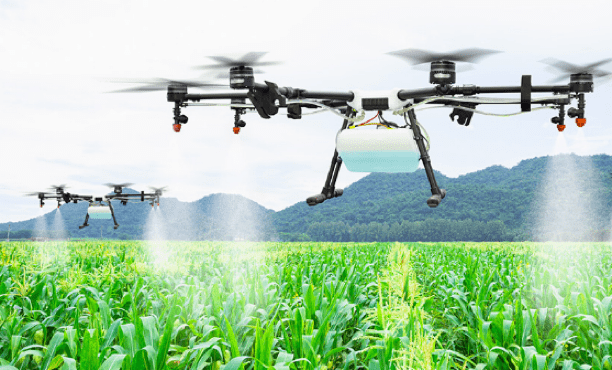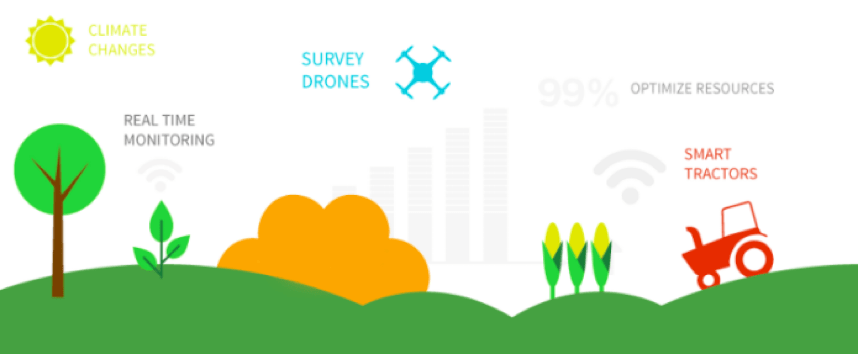
Introducing AI into the agriculture domain can help reap profits in terms of cost-effectiveness and less labor. The predictive analytics generated by AI can provide suggestions to farmers such as better crop production strategies, efficient use of fertilisers, and monitoring of soil health.
Agriculture is one of the biggest sectors contributing to economic growth for most countries in the world. With the rise in industrialisation and urbanisation, the agricultural demands of people are surely going to increase. As farming requires a lot of manual labor and is heavily dependent on variable factors of nature such as rain, weather, and soil, introducing AI into the agriculture domain can help reap profits in terms of cost-effectiveness and less labor. The predictive analytics generated by AI can provide suggestions to farmers such as better crop production strategies, efficient use of fertilisers, and monitoring of soil health.

Image Recognition based technology can be used to analyse the texture and type of soil for any nutrient deficiencies. These insights can assist the farmers to know what kind and how much fertiliser to use which can result in healthy crop production.
Predicting the changes and patterns in weather will enable farmers to plan their crop yields accordingly. It will also make them prepared for any unlikely anomalies to happen.
AI can be leveraged to identify harmful insects and pests that can ruin crops. Smart video analytics can utilise algorithms of object detection to capture the location and type of pests. This kind of monitoring might not be manually possible by farmers on the huge fields.
Having robots on the agricultural field will substantially reduce the physical efforts of farmers. Robots can perform tasks such as weed picking and plant harvesting at a much faster rate.
AI-powered algorithms can perform intelligent spraying of chemicals by analyzing the type, location, and amount of weeds present. This can significantly reduce chemical costs and also result in improved crop health.

Developing only smart AI algorithms for analytics does not end the issue for problems faced in agriculture industry. Even after technology exists, making the farmers learn how to use and adapt to it requires a lot of efforts. They need to be informed about the fact that technology will not solve all their problems but rather assist them in their routines. Farmers need to be educated about the technological tools and ways to use them.
Since AI in agriculture is still in a developing stage, some countries do not have a robust infrastructure on site to protect these AI technologies. Hence, it makes them vulnerable to cyber attacks which can possibly leak the private information and invite trouble for farmers. A security infrastructure needs to be set up along with AI facilities.
AI in itself is not sufficient to take forward the revolution of AI in agriculture. Different technologies come in an amalgamation to generate the optimum output. AI can be combined with:
Robots can be employed in place of farmers to perform tedious manual work for long hours. For example, robots can travel across the farms to pick up produce, clean waste, or apply fertilisers.
The usage of sensors for soil health, drones for surveillance, and storage for large amount of data are critical for use in automating farming along with AI.
Data is constantly being generated in agricultural fields in terms of soil, weather, crops, pests, fertilisers etc. By considering this huge but valuable data, insights can be generated in the long run which is why algorithms/technologies handling Big Data will come handy.

AI in combination with Robotics, IoT and Big Data.
In this blog, we introduced the concept of AI in agriculture. Looking at the economic markets and future demands, AI in agriculture seems promising in assisting farmers in the future. There are several benefits of using AI in agriculture but in the initial phase we will come across some potential challenges which needs to be addressed. As a custom AI development company, we assist businesses in taking the maximum advantage of AI. Last but not least, AI in agriculture cannot exist standalone; an ecosystem of infrastructure is required wherein multiple technologies can come together and solve this challenge for the agriculture industry.